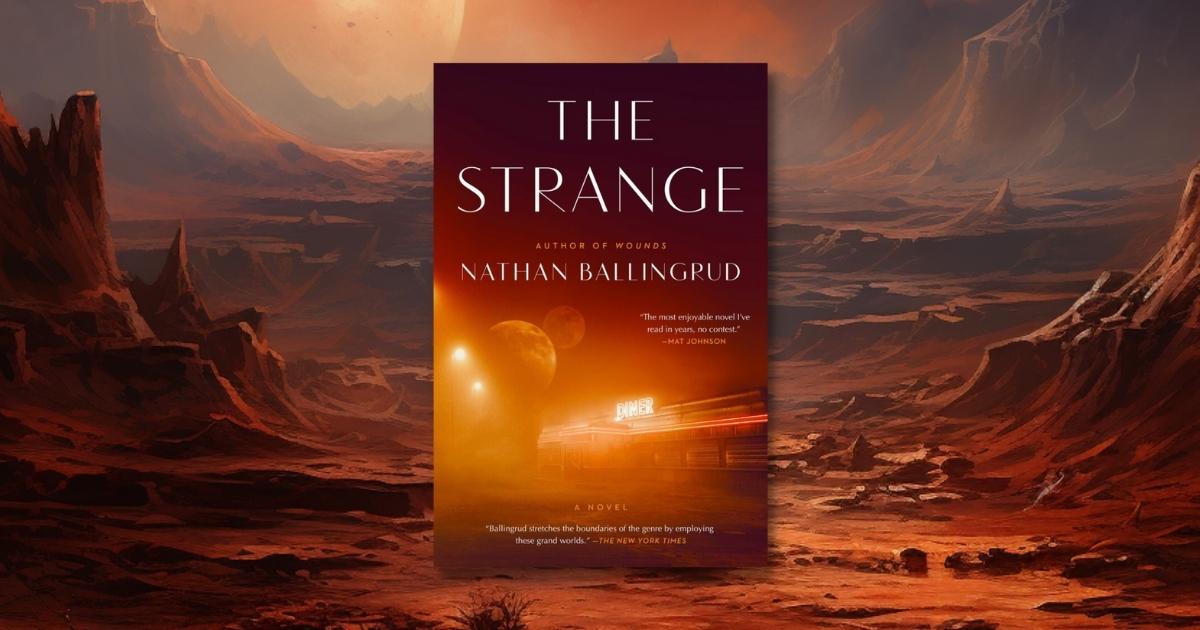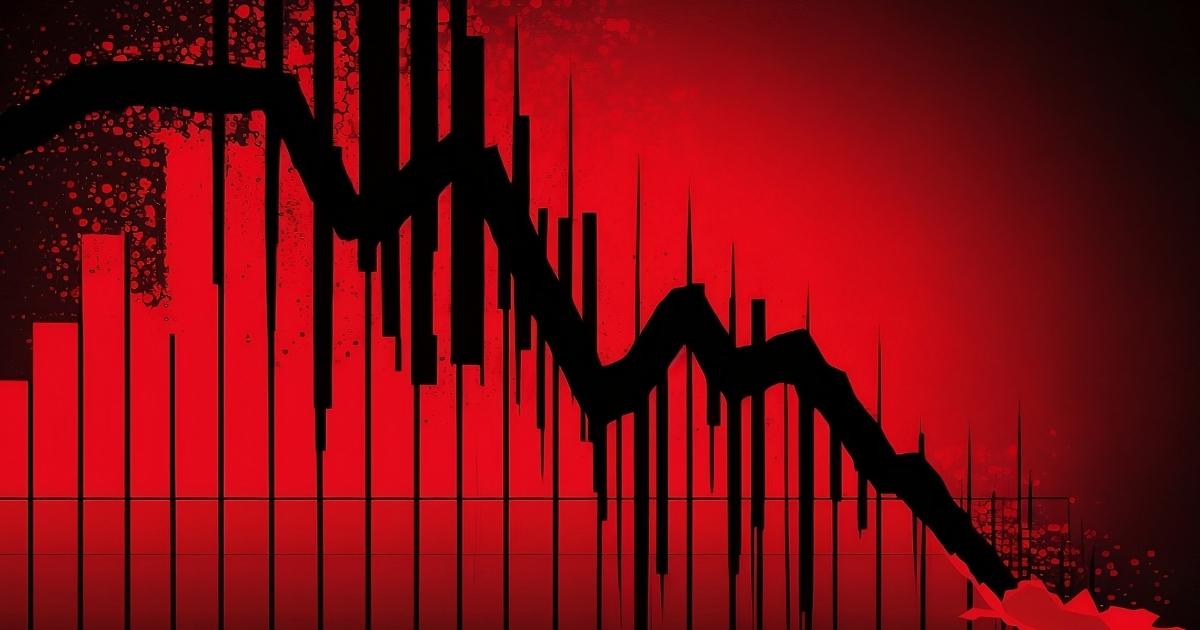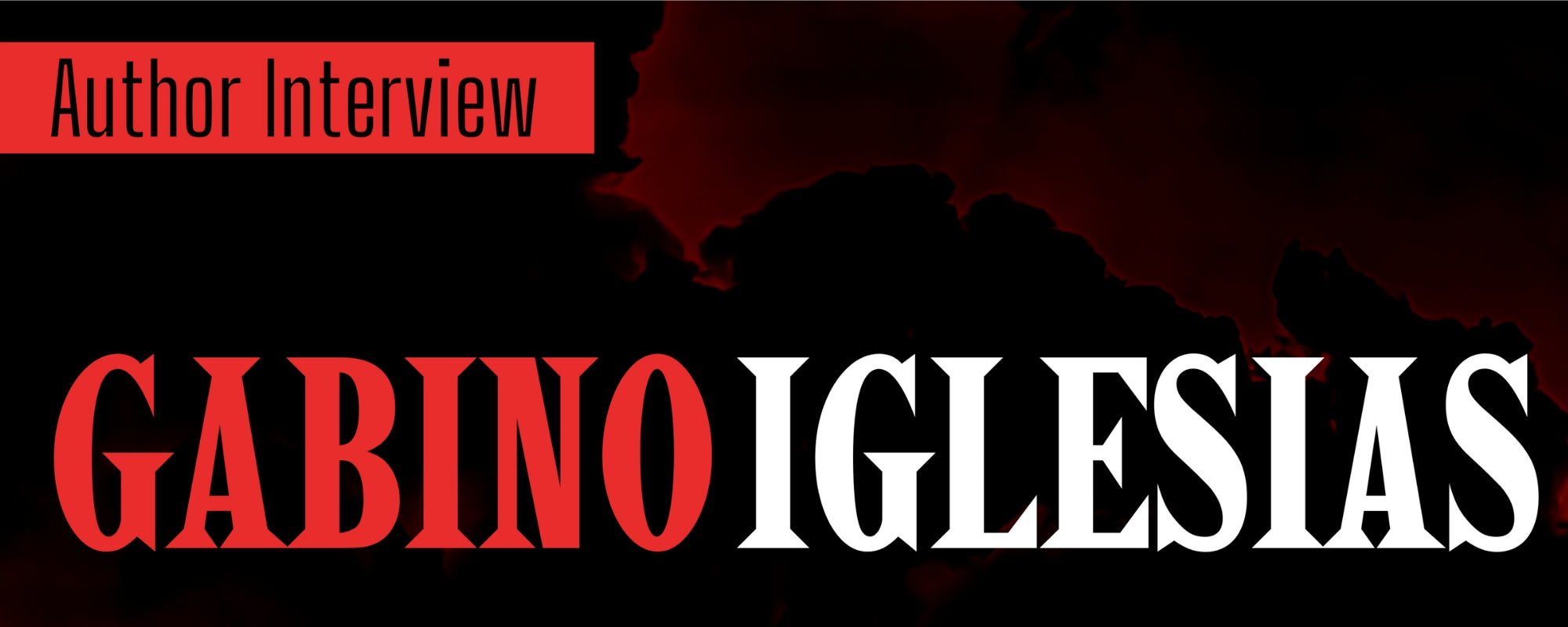
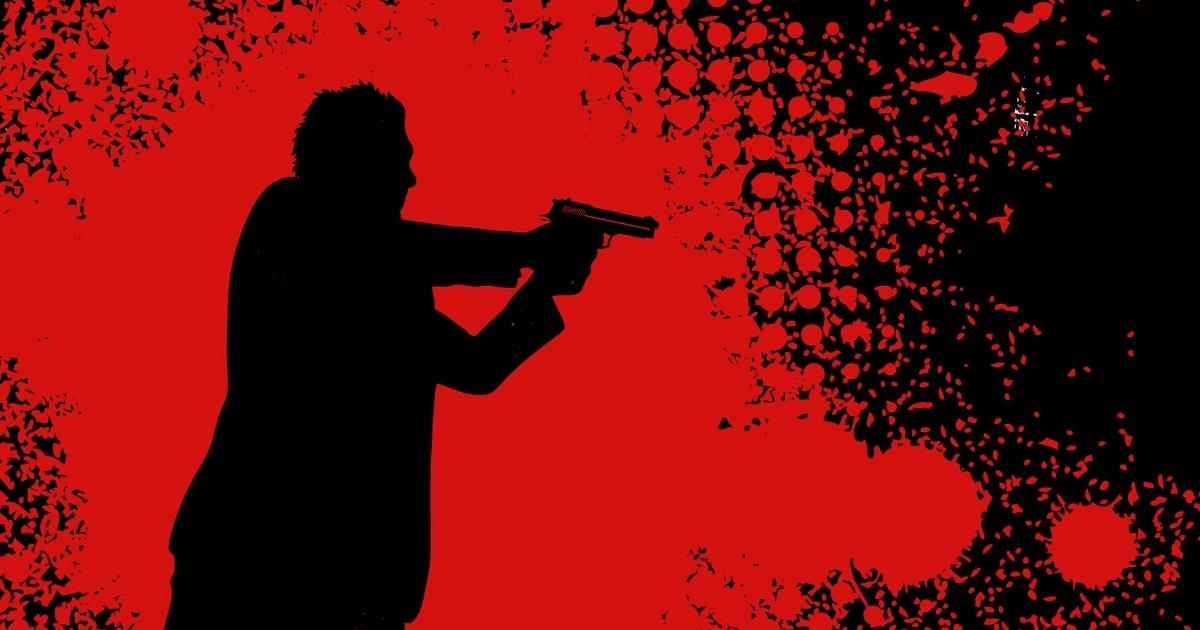
Author Interview: Gabino Iglesias
Feature by Janelle Janson
Known for his gripping novels and short stories in the crime and horror genres, Gabino Iglesias has carved a unique niche for himself in the literary world. In this insightful conversation, we delve into his writing journey, his award-winning novel The Devil Takes You Home, and the inspirations behind his captivating storytelling. Iglesias also shares his perspective on the term “barrio noir,” the themes he explores in his work, and his desire for readers to find hope amidst the darkness.
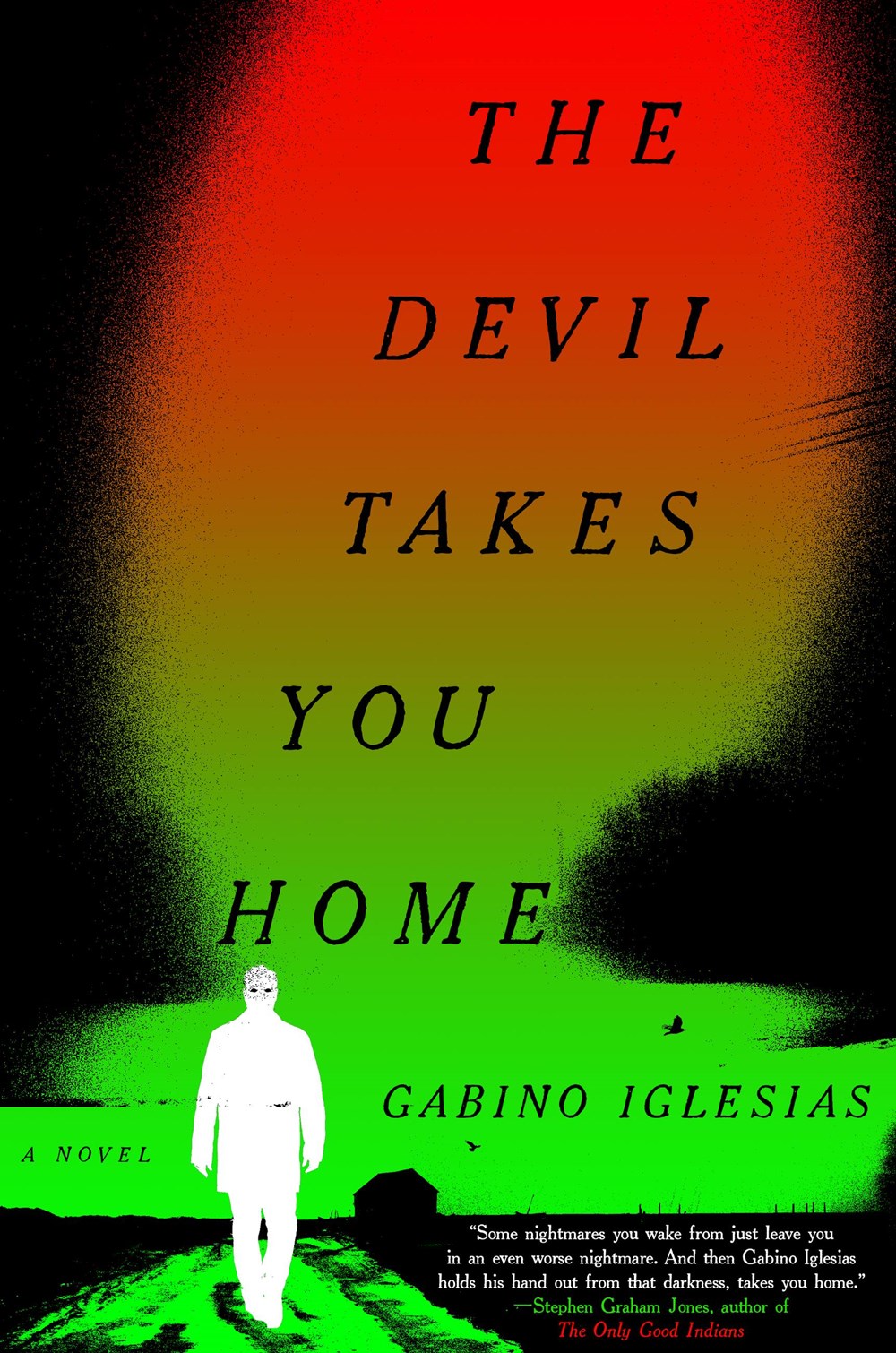
The Devil Takes You Home
(Mulholland Books)
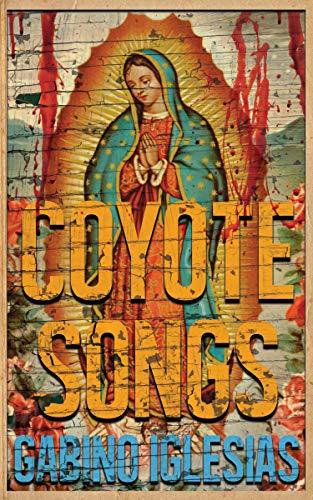
Coyote Songs
(Broken River Books)
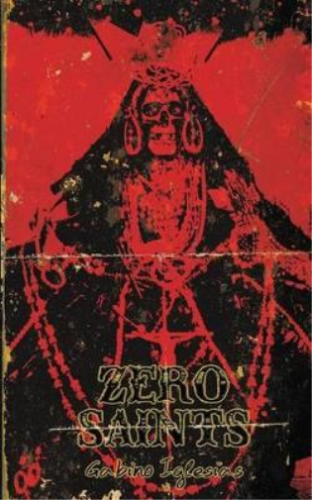
Zero Saints
(Broken River Books)
JANELLE JANSON: Hi Gabino! Thank you so much for agreeing to chat with me today. For those readers that are new to the horror scene, can you please tell us a little bit about yourself? How did you first become a writer?
GABINO IGLESIAS: Thanks for having me, Janelle! Oh, that’s a long story. I was always a fan of books. My eighth-grade teacher made us write a story in English to test our language skills (this was back home in Puerto Rico). I wrote a gory story about a deformed child that brutally murdered my entire neighborhood. Long story short, the school called my parents. After they had explained what I’d done, my pops looked at the two women conducting the meeting and said, “okay, but was it well-written?” I knew then that I wanted to tell stories for a living. It’s the only gig I’ve had that makes me happy.
JJ: Your résumé is incredible. Did you write your first novel before or after your work with NPR, New York Times, LA Times, Publisher’s Weekly, Electric Literature, Lit Reactor, Locus Magazine, and the San Francisco Chronicle?
GI: I wrote a bunch of short stories, a novel, and some crappy poetry in Spanish way before any of that. I switched languages and started writing in English when I moved to the States in 2008. I wrote my first novel in English that year. It was bad. I think I’ve gotten better since then.
JJ: I’ve previously read Coyote Songs and Zero Saints and loved them both. So, I was already a super-fan by the time your latest novel The Devil Takes You Home was published by Mulholland Books and later won this year’s Bram Stoker Award for Superior Achievement in a Novel. How did it feel when they called out your name as the winner?
GI: I’m still sort of processing it. I mean, they called my name, and my heart skipped sixteen beats, and then I got up there and gave my acceptance speech. I went to bed at around 3:30 a.m. that night and woke up an hour later to head to the airport. I was in line at TSA when it hit me: I’d made the list. Stephen King. Robert McCammon. Richard Laymon. Thomas Harris. Peter Straub. Joyce Carol Oates. Neil Gaiman. Tom Piccirilli. Sarah Langan. Paul Tremblay. John Langan. Owl Goingback. Stephen Graham Jones. Gabino Iglesias. It was hard to believe. Then something even weirder happened. I went to look at every winner since the Stoker’s inception in 1987. I was the first Latino to win in the Novel category. That one hit me right in the feels and messed me up emotionally for a whole day. I’ve always fought for diversity in publishing, so being the first meant a lot.
JJ: In a few words, can you describe The Devil Takes You Home? How long did you work on it from start to completion?
GI: The Devil Takes You Home is a novel about people doing truly awful things for all the right reasons. It has a lot of grief, violence, monsters, and mayhem. I started writing it while working as a high school teacher at a public school. It took me about a year to get thirty thousand words on paper. Then the pandemic rolled around, and I lost the teaching job. I spent two months looking for a new gig, but no one was hiring. I wasn’t the only one without a job, so everything felt bad. Then I decided it was the chance I’d been looking for. I could get up and write. Writing could be my job. If I made it work, then I maybe I could turn the writing thing into my career. I’d say it took me two years to get it done, and then one more to get it out into the world.
JJ: How was it to work with Mulholland Books?
GI: It was fantastic! The team at Mulholland is superb. My editor, Josh Kendall, understood what I wanted to do from the start. He let me have all my violence, weirdness, anger, politics, and Spanish, and for that I’m forever grateful. And then I worked with Alyssa Persons, who got the book in front of the media and helped me with my first official book tour.
JJ: The novel’s protagonist, Mario, is a compelling, flawed, and very human main character. Was he difficult to write?
GI: It was way too easy. We were in the middle of a global pandemic, and I was scared to leave the house because people were getting very sick, and I did’t have health insurance. I was angry. That made Mario’s situation more important to me. Then I decided to give myself therapy and write about the awful job I had for almost two years at a life insurance company, so I gave Mario that job. He was his own thing, but we shared a lot, so I found myself putting on his shoes without a problem while writing the novel.
JJ: Tell us about the term “barrio noir”?
GI: I was about to send Zero Saints to my editor. I knew authors put “a novel” under the title, and I liked that, but it felt kinda flat to me. Zero Saints was the first time I felt I’d found my voice. It was a mix of horror, crime, noir, and magical realism that I loved. I contained Spanglish. It was angry and political and violent. I need something more than “a novel.” I knew it was a noir, but I needed something else. Then it came to me: I was writing about my people, in my language. I was putting the barrio I carry in my heart on the page, so I put “a barrio noir” under the title. Been calling my work that for almost a decade now, and I think it works.
JJ: The Devil Takes You Home shines a light on violence, grief, and the dark depths of humanity. What do you hope is the main takeaway for your readers?
GI: The takeaway, strangely enough, is that there is always hope. No matter how low you get, try to get up, try to make things better. In the novel, this means doing a lot of bad things, but they do those things because they want a better life.
JJ: What is a book you always recommend?
GI: I can’t do one, so here are a few: The Only Good Indians by Stephen Graham Jones, Last Days by Brian Evenson, The Between by Tananarive Due, Good Neighbors by Sarah Langan, Tinfoil Butterfly by Rachel Eve Moulton, A Head Full of Ghosts by Paul Tremblay, and The Hunger by Alma Katsu.
JJ: What is your favorite book of 2023 so far?
GI: Oh, this one would be a three-way tie between Monstrilio by Gerardo Sámano Córdova, Our Share of Night by Mariana Enríquez, and The God of Endings by Jacqueline Holland.
JJ: What is your favorite horror movie, and also your favorite horror trope?
GI: This changes every day! I’ve already failed miserably at following your rules so far, so instead of one, here are three: Lake Mungo, Even Horizon, and Jaws. I love haunted houses.
JJ: Which authors have inspired you?
GI: Too many to list! Charles Willeford, Poe, Brian Keene, Paul Tremblay, Lovecraft, Bukowski, John Langan, Chester Himes, Julia de Burgos, James Ellroy…and I’m going to stop there.
JJ: Finally, to close us out, do you have any exciting announcements you’d like to add? Any new projects?
GI: Well, the Stoker was an amazing thing that changed my life, but I just followed that up with a Shirley Jackson Award, which is also truly amazing. I’m working on the edits of the next novel and, as always, on a few short stories. The Devil Takes You Home is out there and I’m still talking about it, but the next thing is always what I’m thinking about.
The Devil Takes You Home is currently available for purchase wherever books are sold.

Gabino Iglesias

Janelle Janson
Feature Writer
Continue reading

Get Author Updates
Promotions, new products and sales. Directly to your inbox.


